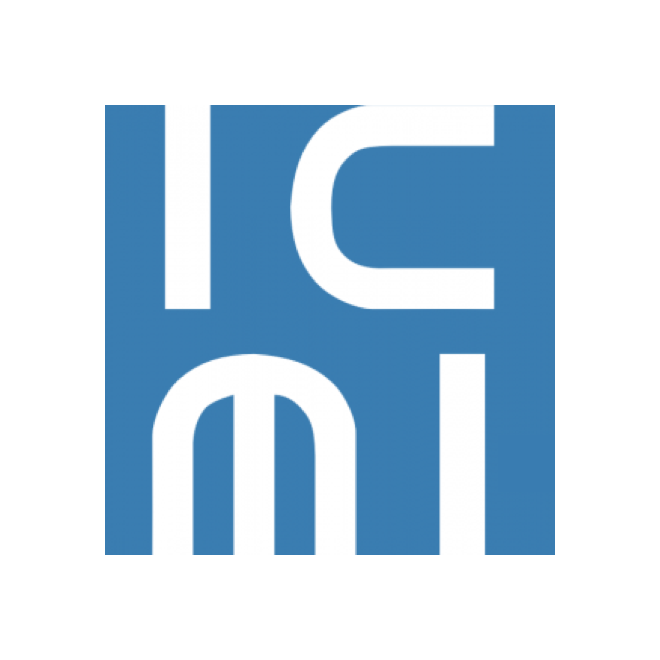Starting from CERME12 in 2022, two awards – the Paper Award, and the Poster Award – have been designated by committees of experts for outstanding contributions to the ERME conferences. The winners and their works are displayed, along with the committees’ appraisal, on this page (click on the links to see the relevant paper or poster).
Paper Awards 2023
Sara Gagliani Caputo (University of Milan, Italy), Design of asynchronous mathematical discussions on Padlet: analysis of students’ social modes and teacher’s roles, TWG 15
“We appreciated the originality of this research on the organization of asynchronic mathematical discussions in pre-service teacher education, combining the use of two different technologies: padlet and Telegram. It is certainly timely and the analysis of the collected data makes clear differences in the respective use of these digital tools important to take into account in the design iterative process.”
Kim Locke (University of Auckland, New Zealand), How mathematical identity informed collaborative learning opportunities for a first-year international student from China, TWG 14
“The jury is glad to award Kim for her original investigation of the university mathematics experience of international students. We particularly appreciated the succesful networking of theories and methods which led to a very informative case study. This research promises very interesting developments for the future.”
Amalie Sødal (University of Agder, Norway), Networking the documentational approach and Valsiner’s zone theory, TWG 17
“The jury appreciated the enterprise at the heart of this paper. The paper reports the networking of the Documentational Approach to Didactics, with Valsiner’s Zone Theory (as adjusted for teachers). The paper focuses on the tensions between the Zone of Free Movement and the Zone of Promoted Action. The paper illustrates the capabilities of a networked lens through the example of Oda, a pre-service teacher. The paper reveals imbalance between instrumentation and instrumentalization and steers our attention to individual and contextual / collective elements of the teacher’s experience. The panel agreed that substance and promise are well-served in this paper as it stands.”
Poster Awards 2023
Christoph Werner poster 708 TWG6 : How working with a professional model affects students’ views on the validity of simulation results
“The poster is innovative on many levels. The theme is original since it includes mathematics but goes beyond mathematics. It is theoretically well oriented, the methodological device is relevant, and linked with the teaching experiment. The layout catches the attention, the poster has a nice flow driving the reader through the research process.”
Fatih Taş & Yüksel Dede poster 559 TWG18 : Mathematics Education Philosophies of Mathematics Teacher Educators
“The poster has a very appealing structure and an original design, related with the theme of the study. The content is theoretically rich and comprehensive. The study reflects in an interesting way the cultural specificities of the place of origin. The poster foster interactions between the audience and the authors.”
Dana Eilers poster 784 TWG17 : Modelling views on didactics of mathematics
“The poster conveys a clear view of the study. It has a creative use of semiotic resources, and is at the same time very complete and scientifically sound. It provides a self-reflection on the field of mathematics education research.”
Paper Awards 2022
Robyn Gandell (University of Auckland, New Zealand): Moving mathematically. TWG 14: University Mathematics Education
“The committee valued particularly how this original, small-scale study of students’ engagement with solving modular arithmetic tasks imports embodied theories in mathematics education research with data analyses that steer away from the body/mind binary and pinpoint what we may miss when we treat body movement as a mere adjunct to thinking”
Andrea Tiedke (University of Wuppertal): The construction of low attainment in mathematics – why are primary school children selected for intervention programs? Results from a meta-analysis of case studies. TWG 10: Diversity and Mathematics Education: Social, Cultural and Political Challenge
“This paper offers an original and timely perspective on the notion of low attainment identities through the complex interplay between individual, sociocultural and school-based factors.”
Mei Yang (University of Cambridge): Chinese teachers’ professional noticing of students’ reasoning in the context of Lakatos-style proving activity. TWG 1: Argumentation and Proof
“The committee particularly valued the original combination of theoretical constructs from mathematics education research on proof and mathematics teacher noticing which, associated with a methodology based on semi-structured, vignette-based interviews, has led to interesting results.”
Poster Awards 2022
Morten Misfeldt ; Uffe Thomas Jankvist; Raimundo Elicer; Eirini Geraniou; Kajsa Bråting; Andreas Lindenskov Tamborg
“This poster succeeds in capturing everyone’s attention due to its minimalist, appealing and thought-provoking design. It synthesizes a large research project and encourages you to make connections between images, representations and different disciplines.”
ID560 – Community detection for undergraduate mathematical views (TWG8)
Domenico Brunetto, Michela Tassone, Ester Cravero
“This poster successfully emphasizes the different elements of the research work presented and the originality of the methods used. While it includes a lot of information, it remains coherent, accessible and readable.”
Giulia Giovanna Bini
“This poster presents an innovative research project of high scientific quality and encourages ‘new’ research venues. Its graphical design is creative, engaging and capturing.”

